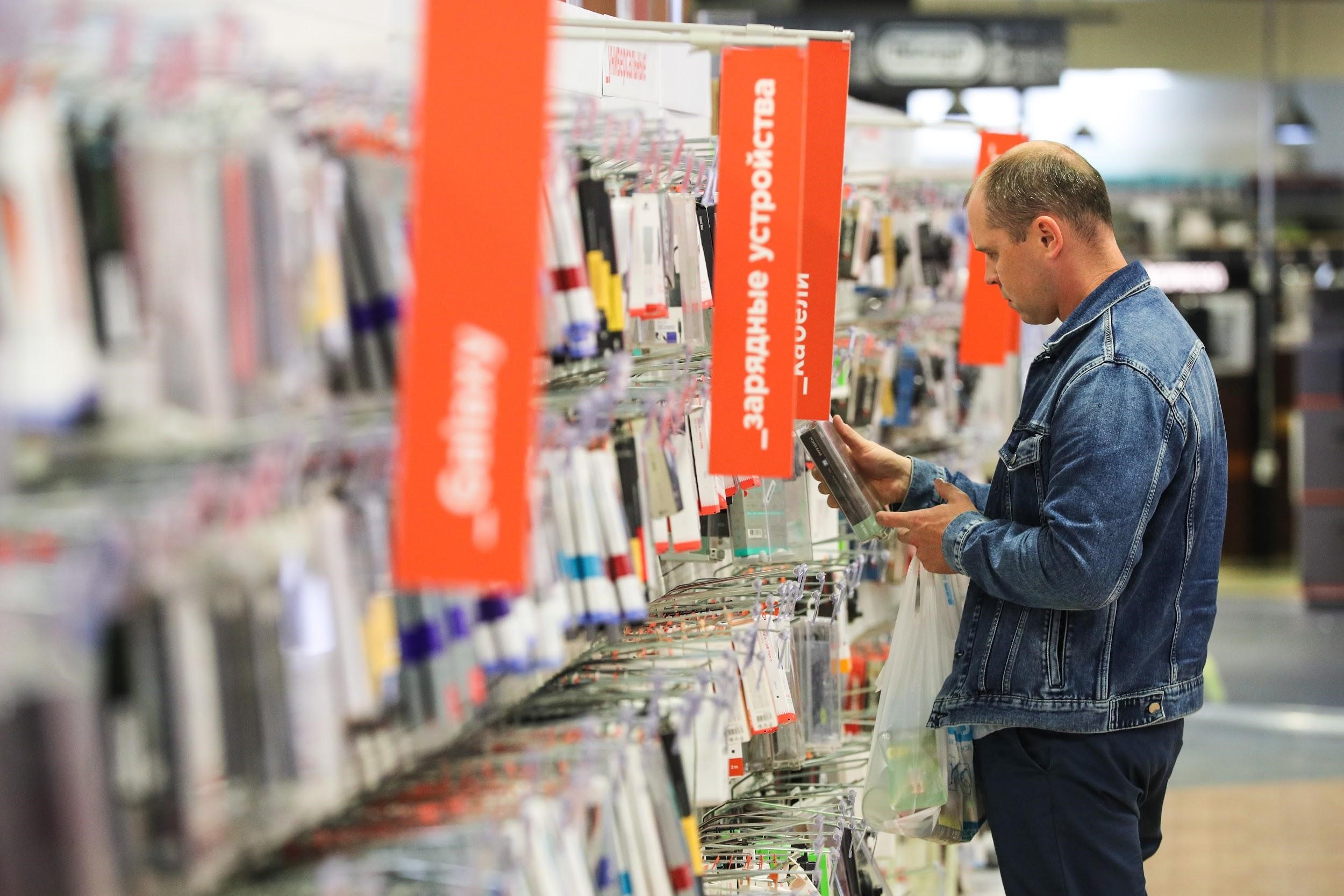
How was electronic document management implemented in the MVideo-Eldorado Group? How many man-hours were spent and how much gray hair the internal team of programmers lost, all these "horrifying" details under the cut.
When we want to show the size of M.Video-Eldorado Group's business, we often mention the number of stores, cities of presence or product positions in the store. But few people pay attention to the fact that in addition to these beautiful numbers there is another one. We have over two hundred suppliers. We have to conduct a continuous exchange of documents with each of them. They accompany every delivery to every warehouse throughout Russia. The flow of these documents is enormous. Any company can drown in it, and it is not easy for us either.
How M.Video and Eldorado nearly drowned in the ocean of paper
At first, along with the goods in our ecosystem, paper documents "moved". The central accounting department worked with them, and the accountants who work in each regional distribution center were engaged in paper processing.
Over time, the tax authorities began to trust scanned copies. This greatly facilitated our work: now documents could be exchanged electronically - the speed of document circulation increased. But the problem remained unresolved. The stock of invoices, specifications, invoices and contracts was still huge, and just entering the data into the accounting system took a lot of time. It is possible not to talk about how the routine load affects the state of the staff.
It cannot be said that at that time independent companies did not think about switching to electronic document management. In "Eldorado" they began to master it, in "M.Video" EDO only the logistics service was covered. The situation was clearly not the best.
At each of the warehouses, accountants were constantly present to carry out invoicing on the spot, even the exchange of scanned copies resembled a Brownian movement. And errors periodically appeared in the accounting system - “the human factor”, nothing can be done ... And the volume of documents was constantly increasing - by 10% per year.
The situation with the archive was not at all easy. We entrusted the storage of documents to outsourcing companies that do not operate in all regions of M.Video-Eldorado presence. Therefore, documents often had to be transported as part of goods or sent by mail from region to region. Not only was this process not cheap, but also documents were periodically lost, and employees had to deal with their recovery.
And when MVideo and Eldorado merged into a single Group of Companies, it became finally clear: it is impossible to do without electronic document management.

What tasks were to be solved
The first task - solving the problem with the archive of paper documents - turned out to be the easiest. We calculated that if we completely abandon them, then the storage period for the most recent document would expire in five years. Thus, the need to organize such an archive will die out by itself. And for newly created digital documents, extensive physical storage is not required - a simple centralized storage system will be enough. But the other two tasks were much more difficult.
The first of the two main tasks is to minimize paperwork. It was necessary to achieve this in order to save money on their creation, and to redistribute the workload on employees.
At the same time, another task had to be solved - the integration of the EDM system with the accounting system of the Group of Companies. Upon receipt of an electronic document, the ERP had to automatically carry out the necessary checks and reflect it in the accounting. All that remained was to find a supplier and choose a solution.
Why we chose TerraLink xDE
A tender was announced to select a solution. It turned out to be very representative, all the main players in the EDM services market submitted applications. The terms of reference were drawn up by a working group of fifteen specialists. It includes business customers, specialists in the field of infrastructure, information security.
The key requirements for the system were successful experience in large retail, open API, ease of integration with accounting systems and multi-operator.
Based on the sum of its qualities, TerraLink xDE was chosen - a single corporate platform for organizing external and internal electronic document management.
It integrates out of the box with SAP ERP used in the MVideo-Eldorado Group, and allows you to exchange documents without roaming with counterparties connected to different EDI operators.
We have set up “connectors” for the operators of the “Big Four” (Taxcom, Diadoc, Tensor and SPHERE Courier) to ensure that almost 90% of documents are processed through EDF. Contractors from TerraLink even took care of providing all employees of the group of companies working with the system with electronic digital signature keys.
Human factor
It is well known that any implementation of an information system is received ambiguously by personnel. At first, the transition to EDM was accepted with hostility in our holding. Many accountants felt that automating the routine operations they had done before would rob them of their jobs.
It is no coincidence that we strived to integrate the EDM system with SAP ERP. In addition to automating data verification and posting documents, it was important for us to make it possible to work with electronic documents and accounting transactions in a single interface. And this functionality has become one of the biggest arguments in favor of TerraLink xDE.
I had to try, to talk with each employee: to talk about why and why EDF is being implemented, what real goals the project is facing, how we will redistribute the workload on the staff, what will be the new responsibilities. We even prepared a special video course that explained the role of EDF and taught how to work in the system.
At this stage, it was important for all employees to explain that the automation of processes will not replace them, but will simplify their usual and often routine duties. For example, carrying out a number of automatic operations in terms of commercial purchases will reduce the time of working with a document from a few minutes (and sometimes tens) to 5-7 seconds:
- .
- , , , . , , .
- , . , , , .
Then a lockdown happened in the spring of 2020. He gave us unexpected help. We, like all companies in Russia, have switched to telecommuting. Before that, our accounting department worked in this mode only partially, and then suddenly all the staff discovered that it was possible to fully work with documents from home, continuing to receive a full salary and feeling confident in the future.
Almost a year, the accounting department has been working remotely. During this time, not a single person was fired due to the introduction of EDM, and none of the accountants had their salaries or responsibilities reduced. But instead of routine operations, today they solve higher-level problems.
Things were much easier with the counterparties. In 2019-20, three-quarters of our suppliers switched to exchanging documents with us in EDF. The fact is that the largest of them have already used electronic document management, and it was even more convenient for them to switch to it when working with us.
Colleagues even invited members of our project working group to their place to share their own experiences. Other vendors were also supportive of the idea. Many of these companies have already thought about switching to EDI themselves, and our project became an excuse for them to start this process.
From big to small
The first territorial structures with which we began the implementation of EDM were central distribution warehouses located in the vicinity of Moscow.
Together with partners from TerraLink, we visited each of them, conducted staff training, and conducted test sessions of using the system. At these sites, we managed to identify the most difficult moments of implementation and work out inconsistencies and inconsistencies.
When we moved to regional warehouses, thanks to the experience gained at distribution hubs, implementation work became much easier and faster. If nine months passed from the moment of choosing a solution to the launch of EDM in the center, then it took only five to connect to the system of regions. We did all this work with the help of two project teams - ours and the TerraLink company. Each of them included 10-15 developers and analysts.
Now the system provides work with both formalized (UPD, UKD) and non-formalized documents (Agreements, invoices for payment, TORG-2 discrepancy statements, reconciliation statements, etc.).
How we fixed our own mistake
Starting work on the project, both our specialists and the customer's representatives tried to take into account the preferences of all interested departments. Therefore, we communicated with their leaders in parallel. But this became the cause of a serious mistake, which took time and effort to overcome.
The fact is that we began to form the target business process separately for each department. As a result, we confused the work on the project, and the solution, which was supposed to be the same for the entire Group of Companies, began to disintegrate into separate parts, each of which was focused on the tasks of only one department.
This parade of sovereignties had to be stopped. Business customers from each of the departments were invited to the working group, and we all worked together to find a compromise solution that suited everyone.
How we fixed our own mistake
Today 80% of commercial purchases of M.Video-Eldorado Group have been transferred to electronic document management. Every month, 40 thousand primary accounting documents are entered into EDM, and this figure is impressive both for our business partners and employees of those departments that are not yet connected to the EDI system.
They saw the benefits of switching to EDI, and they no longer need to be convinced of the need for such a step. On the contrary, already now they are proposing ideas related to the introduction of electronic office work, and we will obviously use a number of them when we will transfer non-commercial document workflow into electronic form.
We were greatly helped by the decision to carry out, simultaneously with the deployment of EDM, the automation of document posting. Today, in the commercial part, 85% of primary documents are recorded without human participation, which saves time, money, helps to avoid mistakes and increases the speed of decision making.
In our near future, we plan to ensure the digitalization of non-commercial purchases. In parallel with the introduction of EDM, we plan to optimize the base of stock listings and reference information, launch a corporate certification center, and integrate with Source to Pay.
More and more experiments on labeling various product groups appear on the market. We are monitoring this and plan to actively work with traceability.
At this stage we really need talented programmers . If you are like that, come , it will be interesting.